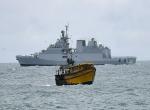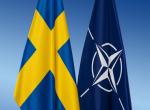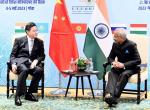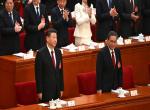Should Wikileaks be taken seriously? Has our media giving them more attention than they deserve? These are the questions that have been asked. The first round of Wikileaks created a sensation as, for the first time ever, classified diplomatic communications of the world’s foremost power were being exposed involuntarily.
The US government was alarmed not only because the confidentiality of government communications had been breached in this wholesale manner by internal whistle-blowing, it was also concerned that individuals, officials or otherwise, who spoke to US interlocutors in confidence would feel betrayed and embarrassed if their views shared candidly in private became public, particularly if the impression left was that of indiscretion, imprudence or excessive approachability on their part.
The exposure of the identity of their local contacts also threatened to hinder the normal diplomatic work of US missions as interlocutors would become reluctant to open out to them in the future. Which is why Secretary Clinton warned governments in advance about the potential embarrassment the leaks could produce because of the often trenchant appraisals of events and personalities by US diplomats.
With their novelty value fading, the second round of Wikileaks has not caused the same nervous excitement all around. The US government has not sought to pre-empt negative fall-outs, and other concerned governments too have shown little anxiety. The political resonance this time has been secondary to the media resonance.
But then, what does taking the Wikileaks seriously actually mean? That we should not dismiss these reports as mere information gathering from disparate sources by US diplomats for improving their own and their government’s understanding of events, personalities and political developments in India for assisting policy making at Headquarters, but with little consequence for shaping the ground realities here? Or does it mean that we should read them closely as they offer vital insights into US thinking about India, providing clues that have been escaping us, from which our own US policy making can benefit?
Does taking the Wikileaks seriously mean that there should be some accountability if individuals here and there have spoken out of turn and have conveyed a picture of confusion or lack of consensus on important policy issues at the highest levels, damaging thus the conduct of our foreign policy? Or does it mean that we should learn some lessons from the extent of US monitoring of our political system, the reach its middle level officials have into its high echelons, the indiscretions of sections of our political class by evolving some norms about levels at which political parties hierachies should engage with foreign diplomats and making them more aware of the virtues of reticence?
Because the Wikileaks deal with fairly contemporaneous events and personalities, how the US diplomats interpret them or what opinion they have of them attracts our curiosity and interest. As it happens, there is virtually nothing in the cables that provides any fresh information or insight, but that does not detract from their inherent significance. These cables show that the US diplomats with their professionalism and detachment as outsiders do not have any “better” understanding of the Indian scene than any thoughtful and intelligent local observer. In fact, their understanding is conditioned by what they hear from their Indian interlocutors. In other words, these cables should dispel any impression that with the resources at their command and the access they have, the US diplomats are able to distil an understanding of Indian developments that eludes most of us.
Another lesson we should draw is that we do or say, the way we conduct ourselves, the debates we engage in, the issues that divide us, the weaknesses we exhibit, the opportunism of our politicians, the cross-currents that agitate our society, are all being observed by foreign missions here and the judgments they make, which are not different from those that we often make ourselves of the state of our politics and society, get transmitted to their respective capitals and influence assessments and policy making there.
This external dimension of the functioning of democratic and open societies in an exposed environment is often ignored. Those who complain that enough is not being done to improve India’s image abroad forget that the way we conduct our affairs domestically influences how we are seen by outsiders. The positives of our situation should certainly be projected outside, but to imagine that this will obscure the negatives from intrusive external eyes in a media-saturated world is an illusion. There is an umblical connection between the internal and the external that we often lose sight of.
The Wikileaks are rich in reporting in felicitous prose, but poor in information on policy recommendations. The isolated instances of where the US Embassy here wades into the policy terrain reveal nothing new. The recommendation that India’s hyper-sensitivity over outside interference in the Kashmir issue dictates that the US government should not give the impression that India’s decision to engage Pakistan is linked to any US pressure, reflects well-known US thinking. The vexing recommendation of the US Ambasssador to Pakistan in favour af arms supply to Pakistan to counter the India threat also unveils nothing that perceptive Indian observers of US policies in the region do not already know.
What is striking in the reports, however, is the highly cynical view US diplomats have of Kashmiri politics and politicians, including the Hurriyet. The contempt for the Hurrriyet has not been translated, however, in policies supportive of India. In the past the US has diplomatically propped up the Hurriyet.
Even now, by supporting a solution to the Kashmir problem that takes into account the “wishes of the Kashmiri people” they are indirectly sustaining the separatist agenda of the Hurriyet.
Whatever the quality and content of the cables, questioning their veracity or deriding them is ill-advised. That the cables treat some party icons with little reverence is no reason to inveigh against them. It can be argued that the cables may be paraphrasing conversations and in the process some distortion can occur. A verbatim record avoids, of course, this pitfall. But it should be borne in mind that serious diplomats do not wilfully mislead their home governments. Errors of judgment should not be equated with dishonest reporting. The US diplomats are doing their professional job according to their lights. Whether we might be impressed or not is far from their minds.
It should not be a matter of concern per se that the US diplomats have wide access and do extensive reporting. Our open society and the intensive agenda of our bilateral relations would explain this. We too take as much advantage as we can of the unbuttoned US system for conducting our diplomacy there, and could do more with committment of more resources, as the Chinese do.
A truly worrying aspect of the Wikileaks disclosures is the low esteem that US diplomats have of our opportunistic political class. Similar reports on the self-serving pre-occupations of our politicians may be going from other Embassies too. Perhaps key countries are already beginning to wonder whether India has the requisite leadership for acting on the global stage in accordance with its stated ambitions and the declared expectations of the US, amongst others.
----------------------------------------------------------
Published in Mail Today 13th September - 2011









Post new comment